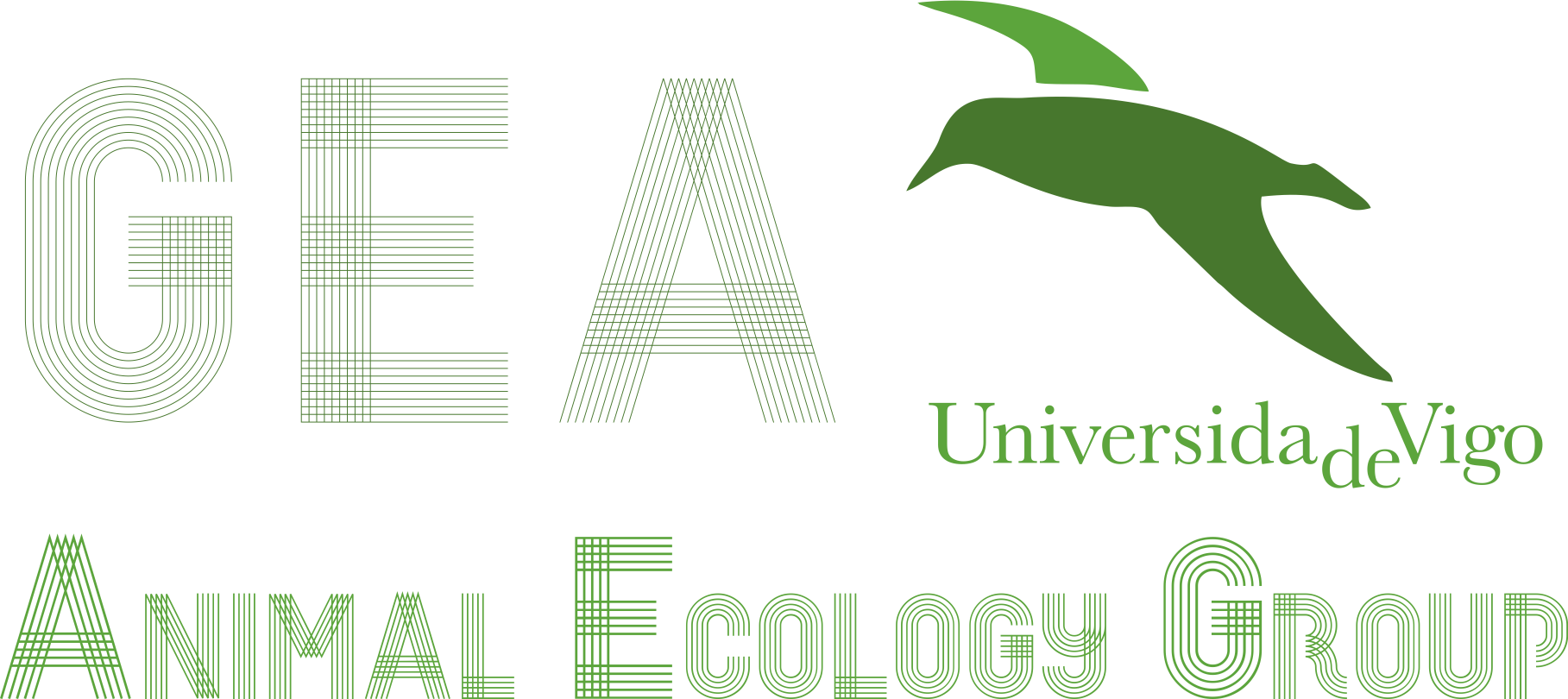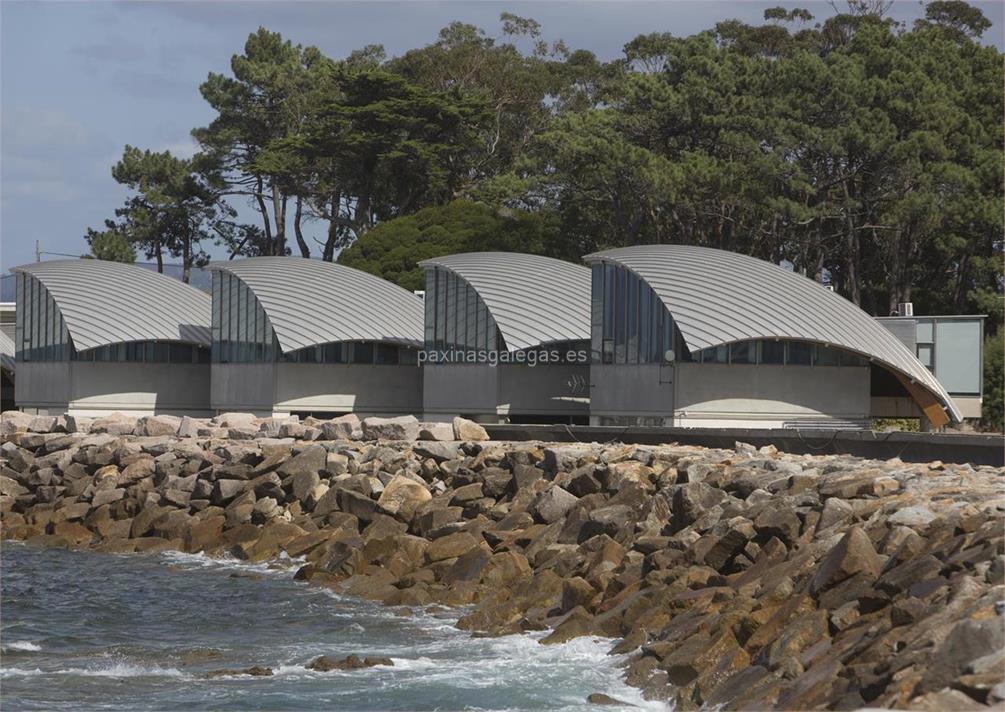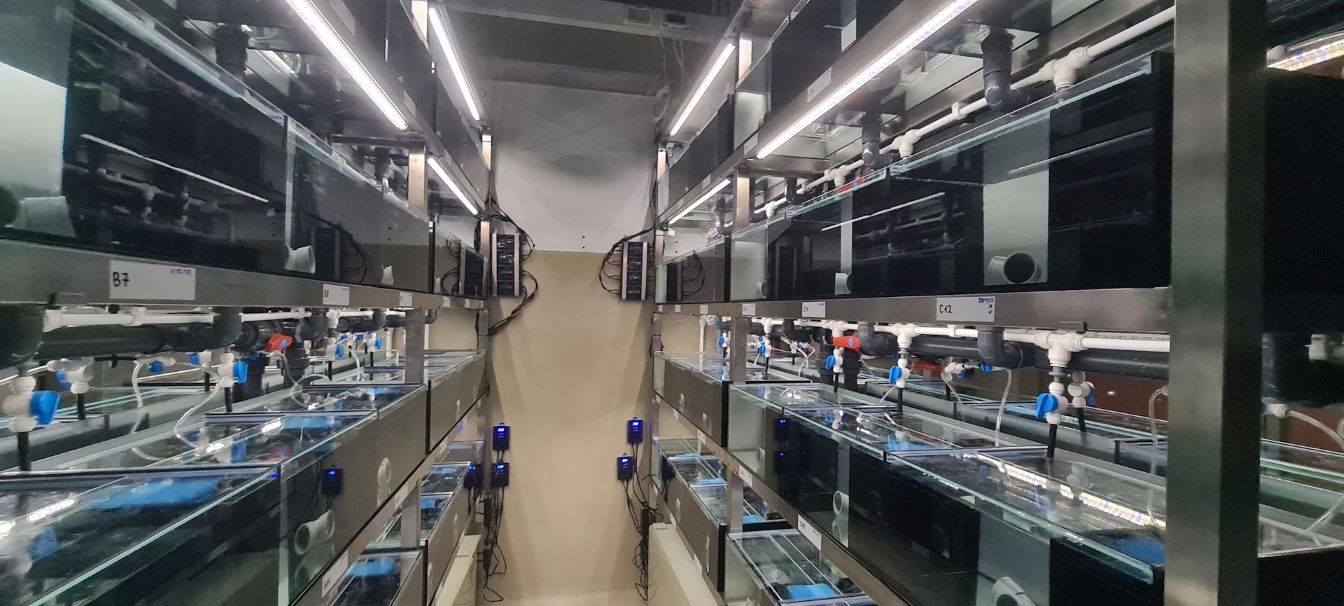- Post-doctoral researcher
• Dr. Violette Chiara (2020-2021),
granted by the Fyssen Foundation
- PhD students
• Wendy Fernández Pujó (2024-), FPI studentship
• Susana Cortés Manzaneque (2021-2025), FPI studentship
• Nayade Álvarez Quintero (2017-2021), FPI studentship
• Javier Díaz Real (2014-2018), FPI studentship
- Master students
• Belén Otero Rodríguez (2018-2019)
• Cristina Perry Nava (2011-2012)


Cortés-Manzaneque S,
Kim S-Y, Noguera JC, Ruiz-Raya F, & Velando
A. 2025. Prenatal cues of predation risk
modulate the lasting effects of postnatal
predator exposure in gull chicks. The
American Naturalist In Press
Álvarez-Quintero, Kim S-Y. 2024.
Effects of maternal age and environmental enrichment
on learning ability and brain size. Behavioral
Ecology 35: arae049
Kim, S-Y, Chiara, V., Álvarez-Quintero, N., da
Silva, A., & Velando, A. 2023. Maternal
effect senescence via reduced DNA repair ability in
the three-spined stickleback. Molecular
Ecology, 32, 4648–4659
Chiara V, Kim S-Y 2023.AnimalTA: A
highly flexible and easy-to-use program for tracking
and analysing animal movement in different
environments. Methods in Ecology and
Evolution 14: 1699-1707
Kim S-Y, Chiara V, Álvarez-Quintero N, Velando A.
2022. Mitochondrial
DNA content in eggs as a maternal effect.
Proceedings of the Royal Society B 289: 20212100
Kim SY, Álvarez-Quintero N , Metcalfe NB. 2022. Does
the match between individual and group behavior
matter in shoaling sticklebacks? Ecology and
Evolution 12: e8581
Chiara V, Velando A, Kim S-Y. 2022. Relationships
between male secondary sexual traits, physiological
state and offspring viability in the three-spined
stickleback. BMC Ecology and Evolution 22:4
Álvarez-Quintero N, Velando A and Kim S-Y. 2021. Smart
mating: the cognitive ability of females influences
their preference for male cognitive ability. Behavioral
Ecology 10.1093/beheco/arab052
Álvarez-Quintero N, Chiara V, Kim S-Y. 2021. Trap
versus net: behavioural sampling bias caused by
capture method in three-spined sticklebacks. Behavioural
Processes,104504.
Álvarez-Quintero
N, Velando A, Noguera JC, Kim S-Y. 2021. Environment‐induced
changes in reproductive strategies and their
transgenerational effects in the three‐spined
stickleback. Ecology and Evolution, 11(2),
771-783.
Álvarez-Quintero N, Velando A, Kim S-Y. 2020. Long-lasting
negative effects of learning tasks during early life
in the three-spined stickleback. Frontiers in
Ecology and Evolution 8, 313
Kim S-Y, Velando A. 2020 Attractive
male sticklebacks carry more oxidative DNA damage in
the soma and germline. Journal of Evolutionary
Biology 33,121-126
Velando, A., Noguera, J.C., da Silva, A., Kim,
S-Y. 2019. Redox-regulation
and life-history trade-offs: scavenging
mitochondrial ROS improves growth in a wild bird. Scientific
Reports 9, 2203
Kim S-Y, Noguera JC & Velando A. 2019. Carry-over
effects of early thermal conditions on somatic and
germline oxidative damages are mediated by
compensatory growth in sticklebacks. Journal
Animal Ecology 88, 473-483
Kim S-Y, Metcalfe NB, da Silva A & Velando A.
2017. Thermal
conditions during early life influence seasonal
maternal strategies in the three-spined stickleback.
BMC Ecology 17: 34.
Velando A, Costa MM & Kim S-Y. 2017. Sex-specific
phenotypes and metabolism-related gene expression in
juvenile sticklebacks. Behavioral Ecology 28:
1553-1563.
Diaz-Real J, Kim S-Y & Velando A. 2017. Plumage
colour and the expression of stress‐related genes in
gull chicks. Journal of Avian Biology 48:
1216-1225.
Noguera JC, Kim S-Y & Velando A. 2017. Family-transmitted
stress in a wild bird. Proceedings of the
National Academy of Sciences 114: 6794-6799.
Kim S-Y, Costa MM, Esteve-Codina A & Velando A.
2017. Transcriptional
mechanisms underlying life-history responses to
climate change in the three‐spined stickleback.
Evolutionary Applications 10: 718-730.
Diaz-Real J, Kim S-Y & Velando A. 2016. Hatching
hierarchy but not egg-related effects governs
behavioral phenotypes in gull chicks. Behavioral
Ecology 27: 1782-1789.
Kim S-Y & Velando A. 2016. Unsociable
juvenile male three-spined sticklebacks grow more
attractive. Behavioral Ecology and Sociobiology
70: 975-980.
Kim S-Y, Metcalfe NB & Velando A. 2016. A
benign juvenile environment reduces the strength of
antagonistic pleiotropy and genetic variation in the
rate of senescence. Journal of Animal Ecology
85: 705–714.
Kim S-Y & Velando A. 2016. Genetic
conflict between sexual signalling and juvenile
survival in the three-spined stickleback. BMC
Evolutionary Biology 16: 52.
Kim S-Y. 2016. Fixed
behavioural plasticity in response to predation risk
in the three-spined stickleback. Animal
Behaviour 112: 147-152.
Kim S-Y & Velando A. 2015. Antioxidants
safeguard telomeres in bold chicks. Biology
Letters 11: 20150211.
Kim S-Y & Velando A. 2015. Phenotypic
integration between anti-predator behaviour and
camouflage pattern in juvenile sticklebacks.
Evolution 69: 830-838.
Kim S-Y & Velando A. 2014. Stickleback
males increase red coloration and courtship
behaviours in the presence of a competitive rival.
Ethology 120: 502-510.
Nava CP, Kim S-Y, Magalhães MC & Neves V. 2014. Do
Cory’s Shearwaters Calonectris borealis choose mates
based on size? Journal of Ornithology 155:
869-875.
Noguera JC, Kim S-Y & Velando A. 2013. Maternal
testosterone influences a begging component that
makes fathers work harder in chick provisioning.
Hormones and Behavior 64: 19-25.
Velando A, Kim S-Y & Noguera JC. 2013. Begging
response of gull chicks to the red-spot of parental
bill. Animal Behaviour 85: 1359-1366.
Kim S-Y, Fargallo JA, Vergara P &
Martínez-Padilla J. 2013. Multivariate
heredity of melanin-based coloration, body mass and
immunity. Heredity 111: 139-146.
Kim S-Y, Noguera JC, Tato A & Velando A. 2013. Vitamins,
stress and growth: the availability of antioxidants
in early life influences the expression of cryptic
genetic variation. Journal of Evolutionary
Biology 26: 1341-1352.
Kim S-Y, Sanz-Aguilar A, Mínguez E & Oro D.
2012. Small-scale
spatial variation in evolvability for life-history
traits in the storm petrel. Biological Journal
of the Linnean Society 106: 439-446.
Noguera JC, Kim S-Y & Velando A. 2012. Pre-fledgling
oxidative damage predicts recruitment in a
long-lived bird. Biology Letters 8: 61-63.
Kim S-Y, Noguera JC, Morales J & Velando A.
2011. The
evolution of multi-component begging display in gull
chicks: sibling competition and genetic variability.
Animal Behaviour 82: 113-118.
Kim S-Y, Velando A, Torres R & Drummond H. 2011. Effects
of recruiting age on senescence, lifespan and
lifetime reproductive success in a long-lived
seabird. Oecologia 166: 615-626.
Kim S-Y, Noguera JC, Morales J & Velando A.
2011. Quantitative
genetic evidence for trade-off between growth and
resistance to oxidative stress in a wild bird.
Evolutionary Ecology 25: 461- 472.
Kim S-Y, Drummond H, Torres R & Velando A. 2011. Evolvability
of an avian life-history trait declines with
father's age. Journal of Evolutionary Biology
24: 295-302.
Noguera JC, Alonso-Alvarez C, Kim S-Y, Morales J
& Velando A. 2011. Yolk
testosterone reduces oxidative damages during
postnatal development. Biology Letters 7: 93-95.
Morales J, Kim S-Y, Lobato E, Merino S, Tomás G,
Martínez-de la Puente J & Moreno J. 2010. On
the heritability of blue-green eggshell coloration. Journal
of Evolutionary Biology 23: 1783-1791.
Kim S-Y, Noguera JC, Morales J & Velando A.
2010. Heritability
of resistance to oxidative stress in early life. Journal
of Evolutionary Biology 23: 769-775.
Kim S-Y, Velando A, Sorci G & Alonso-Alvarez C.
2010. Genetic
correlation between resistance to oxidative stress
and reprodutive life span in a bird species.
Evolution 64: 852-857.
Drummond H, Torres R, Rodriguez C & Kim S-Y.
2010. Is
kin cooperation going on undetected in marine bird
colonies? Behavioral Ecology and Sociobiology
64: 647-655.
Montes-Medina AC, Drummond H & Kim S-Y. 2009. Distance
from the forest edge matters in habitat selection of
the Blue-footed Booby Sula nebouxii. Journal of
Ornithology 150: 845-852.
Kim S-Y, Torres R & Drummond H. 2009. Simultaneous
positive and negative density-dependent dispersal in
a colonial bird species. Ecology 90: 230-239.
Kim S-Y, Torres R, Domínguez C & Drummond H.
2007. Lifetime
philopatry in the blue-footed booby: a longitudinal
study. Behavioral Ecology 18: 1132-1138.
Kim S-Y, Torres R, Rodriguez C & Drummond H.
2007. Effects
of breeding success, mate fidelity and senescence on
breeding dispersal of male and female blue-footed
boobies. Journal of Animal Ecology 76: 471-479.
Kim S-Y & Monaghan P. 2006. Interspecific
differences in foraging preferences, breeding
performance and demography in herring (Larus
argentatus) and lesser black-backed gulls (L.
fuscus) at a mixed colony. Journal of Zoology
270: 664-671.
Kim S-Y & Monaghan P. 2006. Sex
of the first hatched chick influences survival of
the brood in the herring gull (Larus argentatus). Journal
of Zoology 270: 116-121.
Kim S-Y & Monaghan P. 2006.
Effects of early incubation constancy on embryonic
development: An experimental study in the herring
gull Larus argentatus. Journal of Thermal
Biology 31: 416-421.
Kim S-Y & Monaghan P. 2005. Effects
of vegetation on nest microclimate and breeding
performance of lesser black-backed gulls (Larus
fuscus). Journal of Ornithology 146: 176-183.
Kim S-Y & Monaghan P. 2005. Interacting
effects of nest shelter and breeder quality on
behaviour and breeding performance of herring gulls. Animal
Behaviour 69: 301-306.










